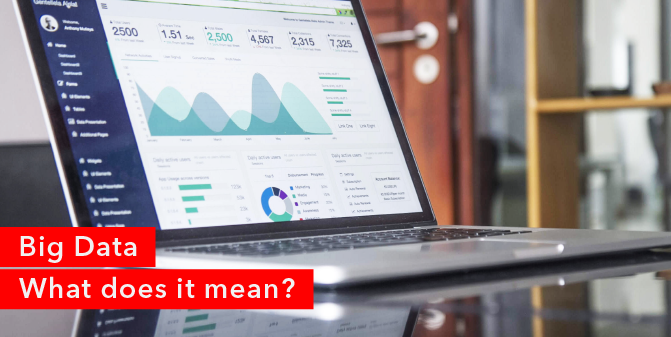Big Data – What does it mean?
We have all heard of Big Data, a term used almost every day. And we all have an idea of what it is … but what does it really mean? And how does it affect how we do business today?
The concept of Big Data was first coined and made popular in the 90s by an American computer scientist, John Mashey. In simple terms, it refers to the insight we can extract from all the data that is being collected around the world, every second of every hour, every day. To put that in perspective, that’s more than 2,500,000,000,000,000,000 (two and a half quintillion) bytes a day!
In its raw form, the data is unstructured and has little if no value. Content such as documents and social media posts, are not stored on conventional types of databases, meaning this data cannot be evaluated using typical forms of algorithms and analysis. So, businesses wanting to glean qualitative insight to help them cater to customers needs are now using cognitive services that will cut through the data and bring a more human meaning to the data.
Companies that have implemented Big Data strategies are seeing the benefits around customer experience and most of all on their bottom line too.
American Express uses predictive modelling to view customer’s previous transactions combined with a large number of variables to forecast customer loyalty with much more precision than ever before.
Using data from various sources such as YouTube, Twitter, Spotify, iTunes and SoundCloud, Next Big Sound is able to forecast music trends. The analytics provided are being used by the likes of Pepsi and others to guide their marketing and sponsorship activities within the music industry.
Netflix is privy to millions of its customer’s viewing preferences, meaning they are able to predict what audiences within the various different regions are more likely to engage with. It’s with this invaluable knowledge that they produce their own content as well as purchase others.
And lastly, when contacting giant online retailer Amazon’s helpdesk, the information you have provided them in the past, plus your search history, is on hand for that customer service representative so they can provide you with a far better and more personalised service than ever before.
These are just some of the ways Big Data can help your business today – imagine what companies will be able to do in the future?
Follow RSAWEB on Facebook, Twitter and LinkedIn for the latest industry news and technology insights.



